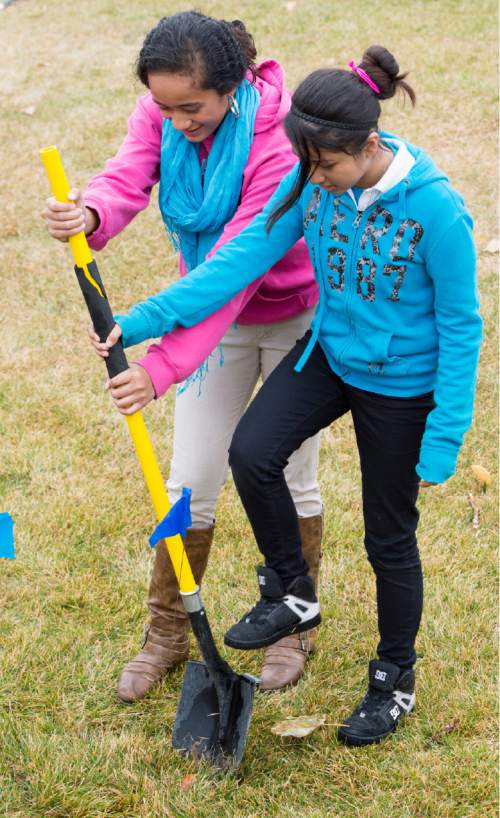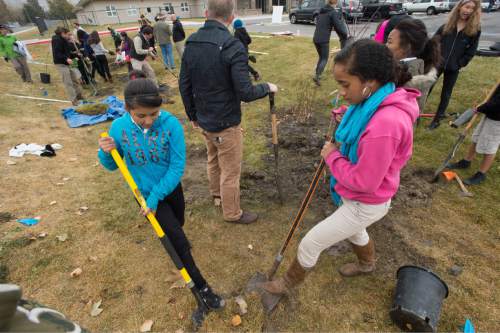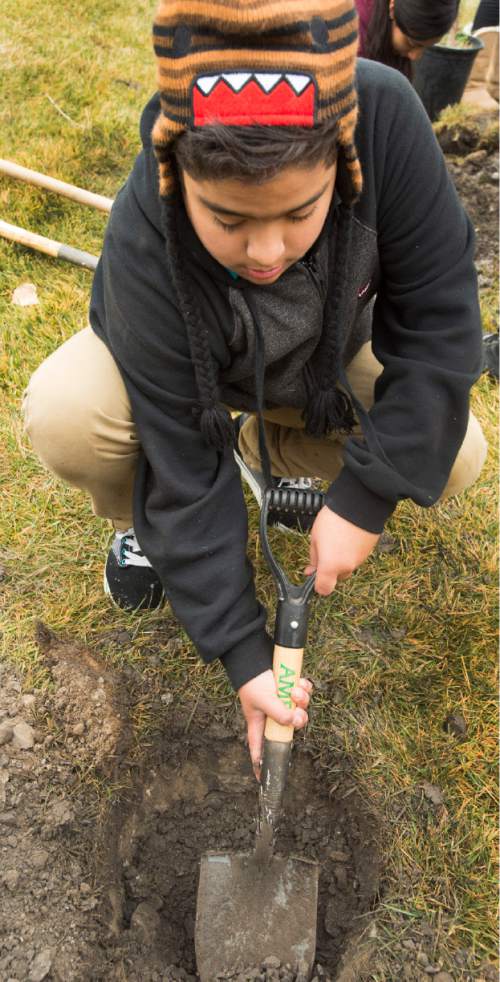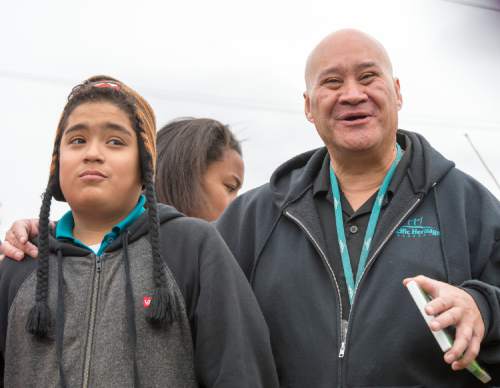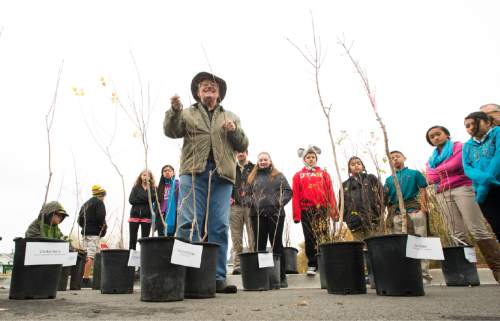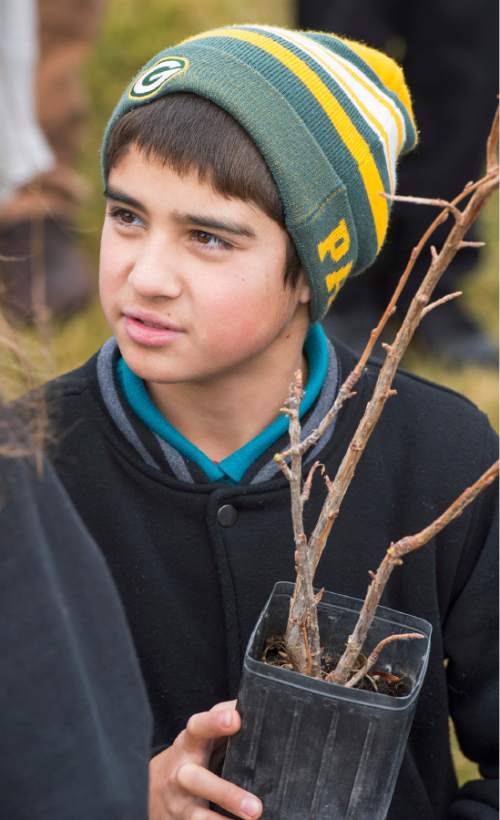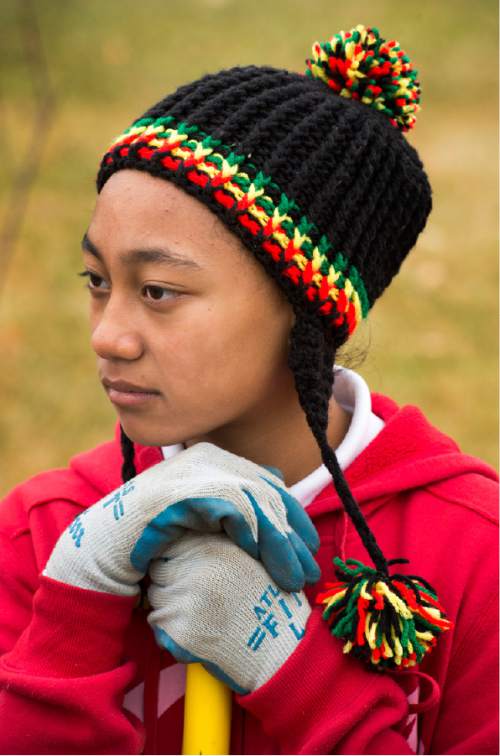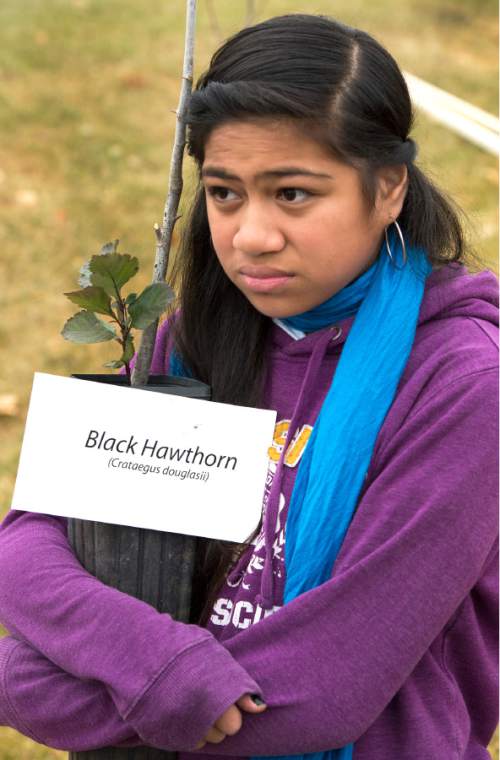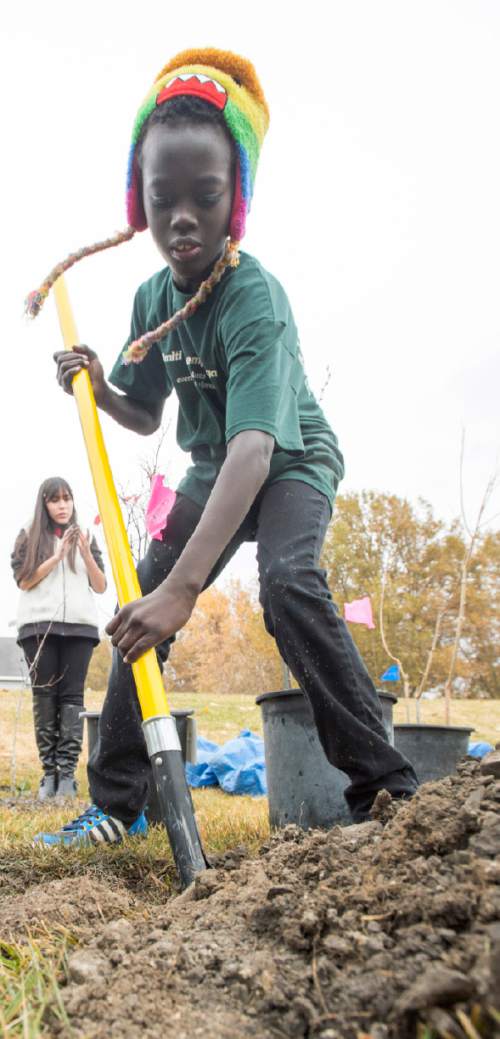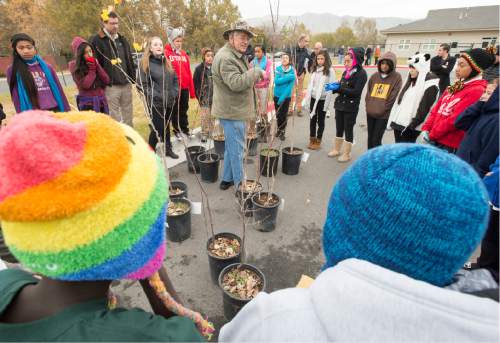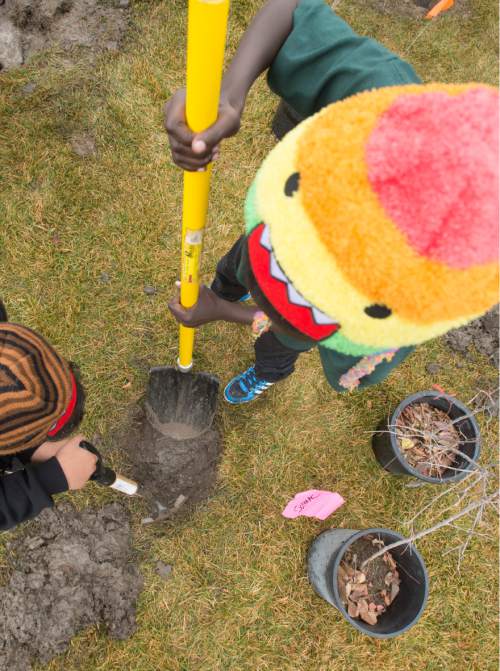This is an archived article that was published on sltrib.com in 2014, and information in the article may be outdated. It is provided only for personal research purposes and may not be reprinted.
Next spring, visitors to Pacific Heritage Academy in Salt Lake City will pass by a budding grove populated with plants and trees native to Utah's Jordan River.
A group of seventh grade students from the charter school planted the stand of trees Friday, alternating between shoveling dirt, wetting the ground with hoses and shivering in the early winter temperatures.
It was cold. It was muddy. But at least it wasn't math.
"I'd rather be out here digging," student Eseta Tuifua said.
For the past eight weeks, students at Pacific Heritage have been studying the Jordan River, part of an educational and community outreach partnership between the Jordan River Commission and the Center for Documentary Expression and Art, an education non-profit.
The school has adopted a segment of the river near the Day-Riverside Library branch for upkeep. And students recently took a canoe trip along the river through their community, Pacific Heritage Director Dirk Matthias said.
Matthias said the program has provided hands-on learning for the students, who have enjoyed activities outside the norm — including digging holes on school property.
"When kids are engaged in something like this, the opportunities for learning are endless," he said. "They'll never forget this kind of thing."
The wildlife grove at Pacific Heritage is the first component of a three-year river restoration project paid for with a $138,000 grant from the Utah Division of Water Quality's Willard Bay Mitigation fund, money set aside after a diesel fuel spill settlement with Chevron.
The grant isn't big enough to pay for a full-scale river restoration, Jordan River Commission Executive Director Laura Hanson said, but the commission hopes to partner with schools and community groups to make the most of the money and encourage stewardship of the river corridor.
"If we really want to see the Jordan River become the jewel that it can be for our region, it's going to take all the community chipping in," she said.
Hanson said six schools are expected to repeat the eight-week program completed at Pacific Heritage, in which local experts with the Center for Documentary Expression and Art visit classrooms twice a week to conduct experiments and guide field trips.
Ty Harrison, scientist in residence for the Center, said that recent lessons at Pacific Heritage have involved making juices from the berries of native plants and visiting ecological gardens along the Jordan River.
"We've had field trips associated with this that give them really practical outdoor experience," he said.
The river commission also plans to hold volunteer events to remove trash and invasive weeds from the river corridor, Hanson said. Those interested in participating can find additional information at jordanrivercommission.com.


